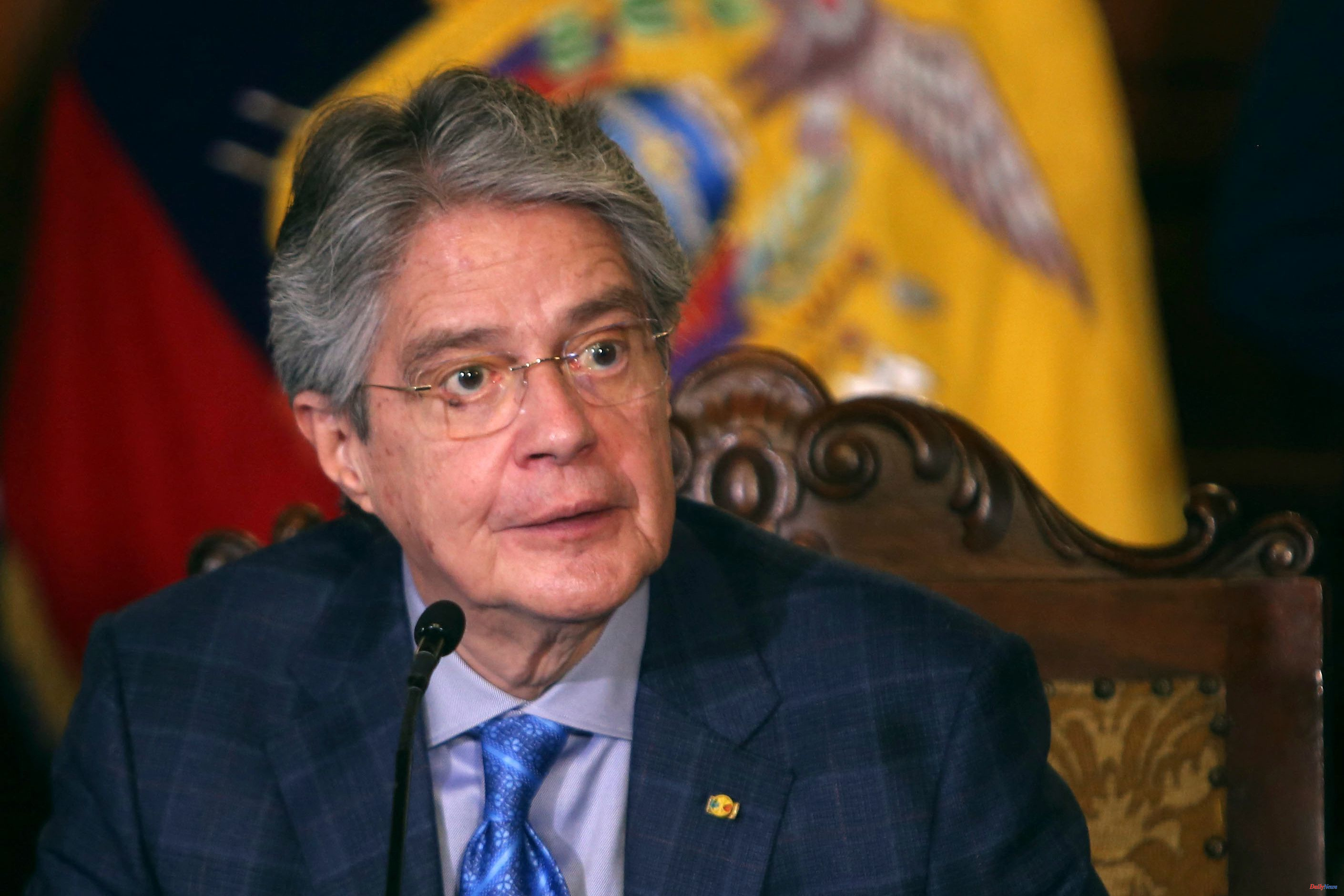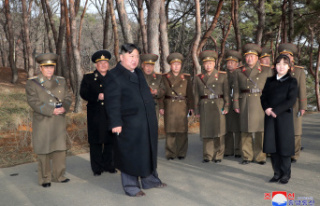"Historical day" for the Ecuadorian opposition. Fifty-eight deputies of the National Assembly have activated today, with their signature, the opening of the political trial against Guillermo Lasso, with which they seek the removal of the president.
With almost as many pages (55) as deputies, the opposition letter accuses the president of participating in a "corruption structure to obtain his own benefits and those of third parties." Lasso's alleged political responsibility is based on the crime of embezzlement and embezzlement in public companies, "for which reason he must be censored and subsequently removed," as detailed in the document presented to the Chamber. The opposition claims to have sufficient evidence to demonstrate the alleged presidential "omissions" in a corruption scheme involving public companies, in which Lasso's brother-in-law would be involved.
After a tug of war during the plenary session this Thursday between the deputies of the different groups that support the initiative, 58 seats were added, 12 more than the 46 necessary. The Ecuadorian impeachment attempt is the latest strategy of former President Rafael Correa, a fugitive from local justice, to return to power. The assembly members of the Unión por la Esperanza (citizens' revolution) have joined those of the right-wing Social Christian Party (PSC), allies of the conservative Lasso during the elections, and have added support from radical deputies from the indigenous Pachakutik party and the rebels of the Democratic Left to try to get the former banker from Guayaquil to leave the Carondelet Palace when he has not yet completed two years at the helm of the country.
The government, which is in a clear minority in the Assembly, hopes that the Constitutional Court will not allow the impeachment to be admitted, but if this is not the case, it would begin in a month, as detailed in the Magna Carta. The judicial ruling should be known before March 26.
The other alternative for Lasso is to decree the "cross death", another constitutional tool that would allow him to dissolve Parliament to decree general elections in six months.
"The Ecuadorian people can no longer resist this misrule," said deputy Sofía Espín, one of the signatories.
The opposition has taken advantage of the outbreak of a corruption scandal to attempt the dismissal of Lasso, engulfed by the wave of violence caused by drug trafficking. The failure of the referendum in February and the victory of the citizens' revolution in the local elections have further weakened their political capital. Correa's subordinates conquered the mayors of Quito and Guayaquil and the prefectures of Pichincha and Guayas, in addition to the provinces and the largest cities.
In the last few hours, former President Correa denounced, in an interview with the Colombian newspaper El Tiempo, that the government sought support in Parliament in exchange for granting safe-conduct for former minister María Duarte, who ended up fleeing to Caracas. "She has used her as a hostage, she has sent us messages from her, if you support me in this, we could free her from her. What María did was leave the embassy," Correa told the Colombian newspaper.
Duarte is in Caracas today after leading a leak that has caused a strong scuffle between the governments of Ecuador and Argentina, with the consequent expulsion of their ambassadors. The former minister was also sentenced to eight years in prison for corruption, like her political boss, but three years ago she took refuge in the Argentine embassy in Quito to flee from justice.
According to the criteria of The Trust Project












